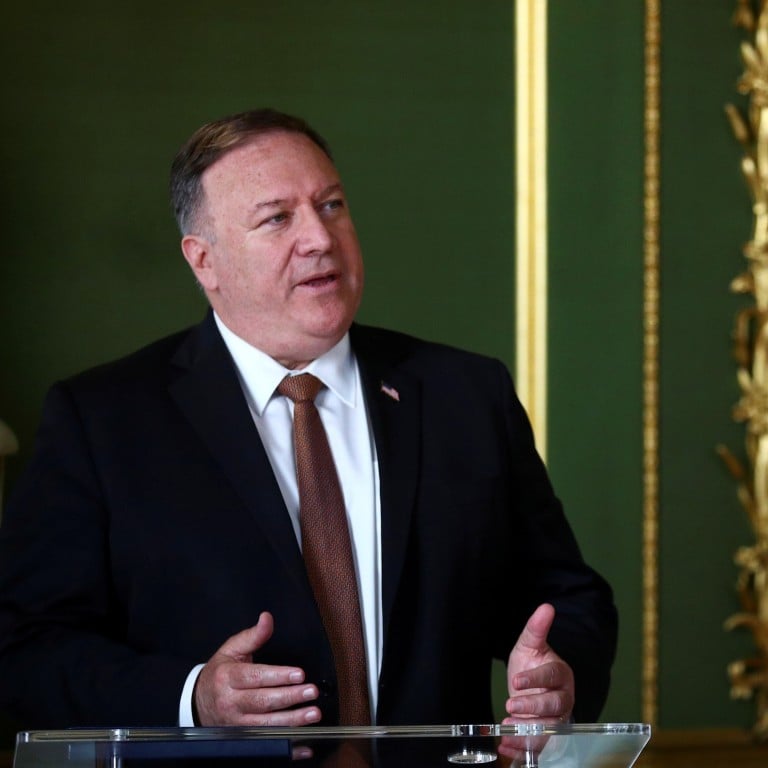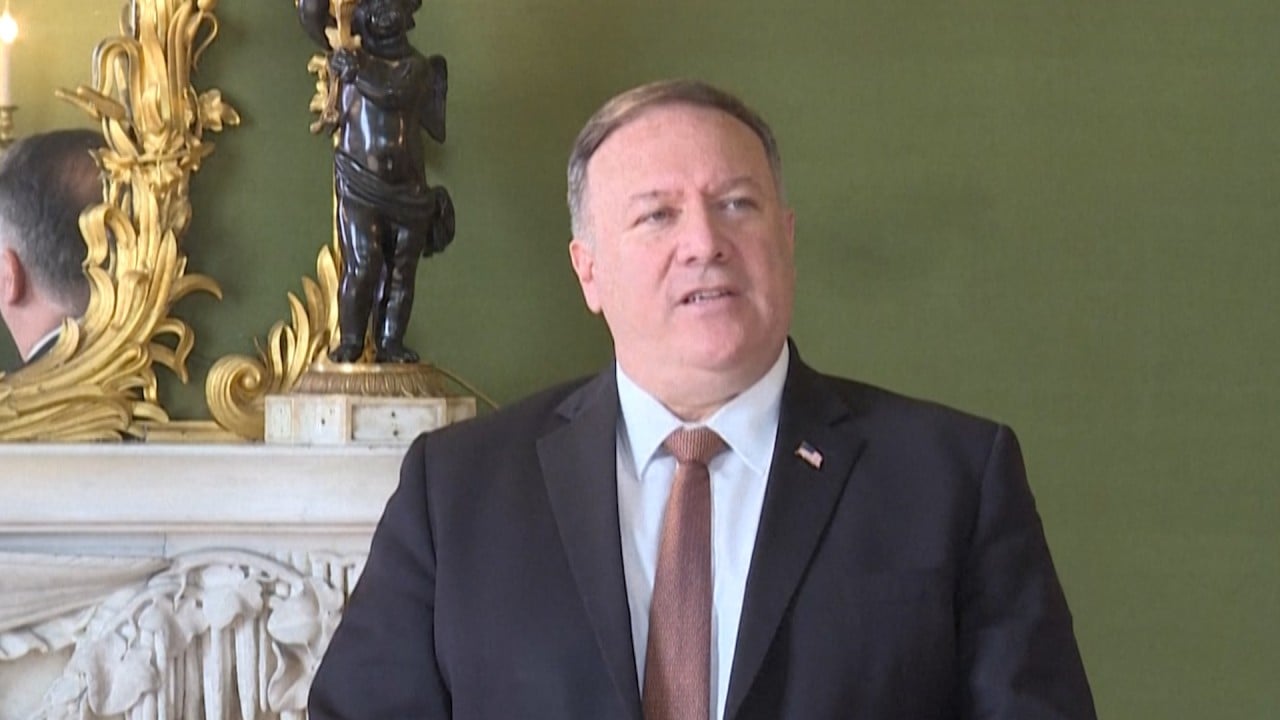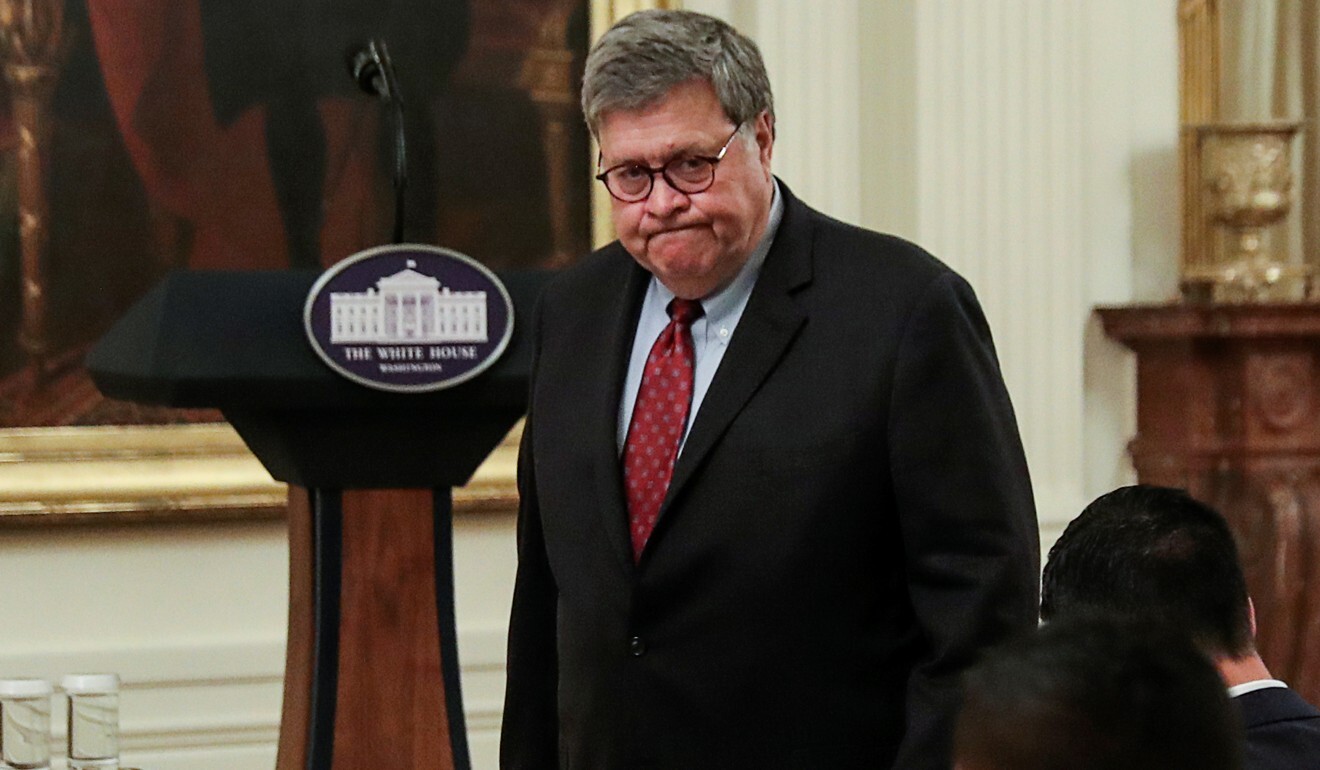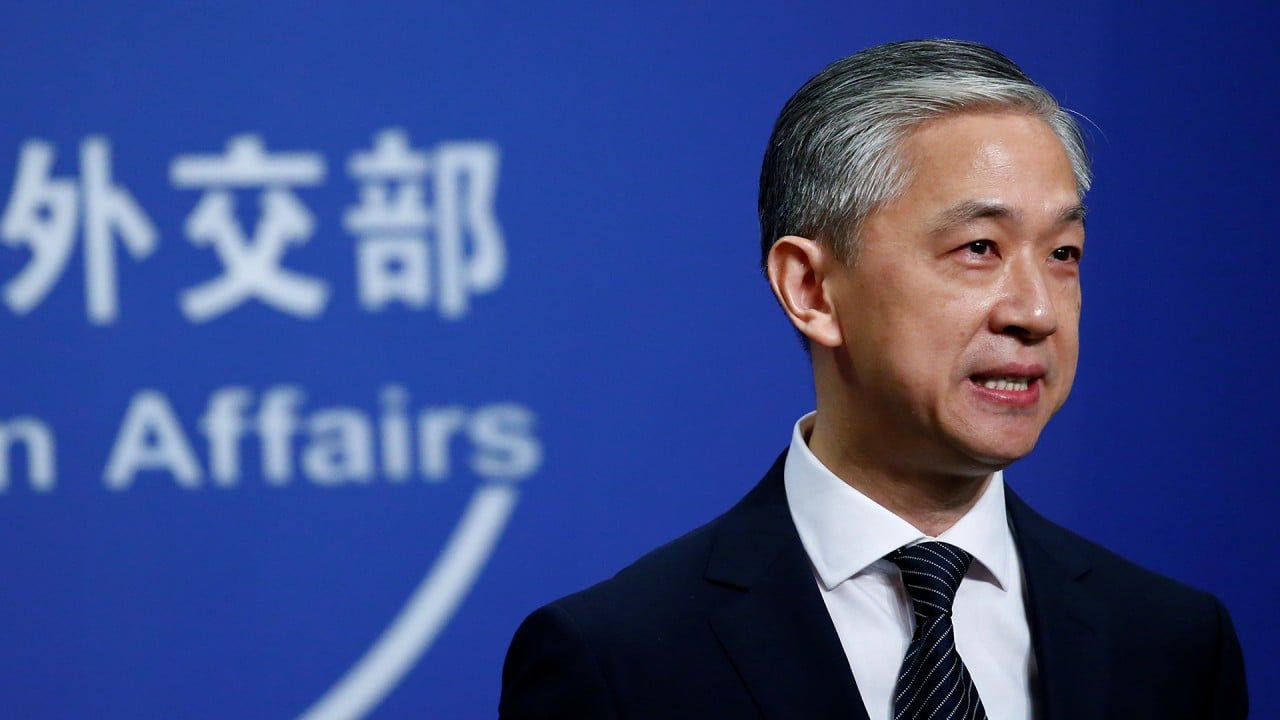
US Secretary of State Mike Pompeo urges China’s citizens to help ‘change the behaviour’ of their government
- Top US diplomat hopes to drive a wedge between China’s people and Communist Party
- Speech is Trump administration’s latest salvo against Beijing, which it regards as America’s foremost national security threat
US Secretary of State Mike Pompeo, the nation’s chief diplomat, has called on China’s own citizens to join an international effort to “change the behaviour” of their government.
Aiming to drive a wedge between the Communist Party and those he sees opposing it – including China’s “1.4 billion people who are surveilled, oppressed, and scared to speak out” and Asia-Pacific countries like Vietnam and Australia – Pompeo proposed “a new alliance of democracies” to push back against “the Chinese Communist Party’s designs on hegemony”.
“The UN, Nato, the G7, the G20 – our combined economic, diplomatic, and military power is surely enough to meet this challenge, if directed properly,” Pompeo said in a speech at the Richard Nixon Presidential Library in Yorba Linda, California, where he welcomed the prominent Chinese dissidents Wei Jingsheng and Wang Dan. “Maybe it’s time for a new grouping of like-minded nations.”
We must also engage and empower the Chinese people … a dynamic, freedom-loving people who are completely distinct from the Chinese Communist Party.
“Our approach can’t just be all about getting tough,” he said. “We must also engage and empower the Chinese people … a dynamic, freedom-loving people who are completely distinct from the Chinese Communist Party.”
Pompeo’s address, titled “Communist China and the free world’s future”, was the fourth speech in a month from a top US official criticising Beijing for its actions and global ambitions, a ratcheting-up of tensions capped by the State Department’s order this week that China must close its consulate in Houston, Texas.

01:17
Pompeo urges all nations to 'push back' against China on visit to the UK
US senators introduce legislation to counter China on several fronts
After a phase-one trade deal was signed in January, hopes were high that frayed bilateral ties would start to mend. But the fanfare over trade gave way to excoriation of China on the national security front, with Pompeo, FBI Director Christopher Wray and US Attorney General William Barr all delivering high-profile addresses characterising Beijing as America’s foremost national security threat.

Earlier this month, Wray said China wants to become the world’s only superpower, supplanting the United States with a government-directed “campaign of theft and malign influence”. And late last month, National Security Adviser Robert O’Brien spoke of “the Chinese Communist Party’s ideology and global ambitions”.
While avoiding a call for regime change in Beijing, Pompeo addressed his department’s order on Wednesday for the Chinese government to close its consulate in Houston, saying that the move was made “because it was a hub of spying and IP theft”.
China is ‘greatest long-term threat’ to the US, FBI director says
The closing risks ending the four-decade US-China relationship that started with Washington’s establishment of official diplomatic relations with the People’s Republic of China in 1979, according to Robert Daly, director of the Wilson Centre’s Kissinger Institute on China and the United States.
The standard international diplomatic way of dealing with people declared persona non grata “is to do it quietly or through public naming and shaming, but this process does not involve the closing of consulates, so this is a very serious escalation,” Daly said in an interview ahead of Pompeo’s speech. “There must have been an assumption that China would close one of America’s consulates.”

00:48
‘Frankenstein’ China requires more assertive global response, says US top diplomat Pompeo
The recent speeches, together with the Houston order, Daly added, suggests that “if there is a strategy at play here, it’s one that is willing to consider the cancellation of diplomatic relations”.
Consulate is ‘epicentre’ of research theft by Chinese military, US diplomat says
“Today we are still operating normally, so we will see what will happen tomorrow,” Cai told Politico, declining to elaborate further.
Neither China’s embassy in Washington nor the Houston consulate responded to queries.

00:58
Beijing says US claim that Houston consulate steals intellectual property is ‘slander’
Addressing a question about arms control in an interview with radio host Hugh Hewitt after the speech, Pompeo called China “a serious global power” and said talks with Beijing could achieve a positive outcome.
“We had arms control agreements with the Soviet Union and we got verification that was sufficient to ensure that we protected American interests,” he said. “I believe we can do it again.”
“The Chinese Communist Party has several hundred nuclear warheads,” Pompeo added. “This is a serious global power, and to the extent we can find common ground, a common set of understandings to reduce risk that there's ever a really bad day for the world, we ought to do it, and it's going to require agreement and verification.”
US suspends Hong Kong import rights over autonomy fears
Pompeo acknowledged the coming 50th anniversary of then-national security adviser Henry Kissinger’s trip to Beijing in 1971, which paved the way for Nixon’s trip months later and the eventual establishment of formal US-China relations.
“The world was much different in Nixon’s era,” Pompeo said. “We imagined engagement with China would produce a future bright with the promise of comity and cooperation.”
“But today we’re all still wearing masks and watching the pandemic’s body count rise because the CCP failed in its promises to the world,” he added.
“We’re reading every morning new headlines of repression in Hong Kong and in Xinjiang. We’re seeing staggering statistics of Chinese trade abuses that cost American jobs and strike enormous blows to the economies all across America. We’re watching the Chinese military grow stronger and indeed more menacing.”

